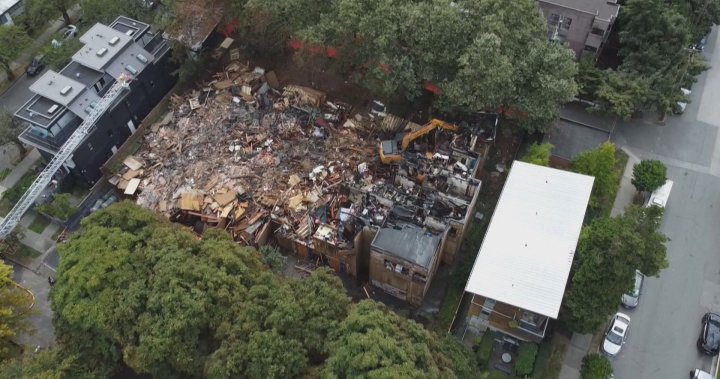The demolition of a Vancouver apartment building following two devastating fires within a short timeframe has exposed a complex web of negligence, inadequate bylaw enforcement, and potential profiteering. The building’s owners, Fu Ren and his wife Feng Yan, have been found guilty of multiple bylaw infractions related to their failure to secure the property after the initial fire. However, the fines levied against them appear paltry compared to the extensive costs incurred by the city and the immense disruption experienced by the displaced tenants. This case raises serious questions about the efficacy of current regulations in deterring negligent landlords and protecting vulnerable residents.
The first fire, which occurred in July 2023, displaced 70 tenants and left the building severely damaged. Despite a fire order mandating the owners to secure the property, maintain a fire watch, and eliminate fire hazards, the building remained vulnerable to trespassers. Neighbors reported multiple smaller fires set by squatters seeking shelter within the ravaged structure. This alarming situation culminated in a second major fire in August, which ultimately led to the city’s decision to demolish the building. The owners’ disregard for safety regulations not only exacerbated the damage but also posed a significant risk to the surrounding community.
The fines imposed on Ren and Yan – $7,500 per offense for Ren and $5,000 per offense for Yan, totaling $37,500 – appear insignificant when weighed against the consequences of their negligence. The costs associated with emergency services for displaced tenants, the demolition itself, and the ongoing disruption to the neighborhood are undoubtedly far greater. Furthermore, the property, recently assessed at $8,025,700, is now listed for sale at $18 million, marketed as a prime development opportunity under the Broadway Plan. This raises concerns that the owners, despite their negligence, stand to profit substantially from the destruction of their building.
Critics argue that the current system effectively rewards negligent landlords, allowing them to flout regulations with minimal consequences. Green Councillor Pete Fry, for instance, has called for stronger bylaws with more substantial penalties to deter such behavior. He believes the current fines are merely a “slap on the wrist” and that the city needs to take a more proactive stance in holding negligent landlords accountable. The ease with which Ren and Yan have seemingly skirted their responsibilities highlights the need for a more robust regulatory framework that prioritizes tenant safety and community well-being.
This case also underscores the broader issue of inadequate enforcement of existing bylaws. Despite the fire order issued after the first fire, the owners failed to comply, leading to further damage and risk. The fact that Ren had previously been fined for fire code violations in 2022 suggests a pattern of disregard for regulations. This raises questions about the effectiveness of the city’s inspection and enforcement mechanisms. A more proactive and stringent approach to enforcement is crucial to ensuring that landlords comply with safety regulations and that buildings are maintained to acceptable standards.
The demolition of the apartment building on East 10th Avenue serves as a stark reminder of the human cost of negligence and regulatory failure. The displacement of 70 tenants, the disruption to the neighborhood, and the potential for the owners to profit from the destruction of their property underscore the urgent need for reform. Strengthening bylaws, increasing penalties for non-compliance, and enhancing enforcement mechanisms are essential steps towards creating a safer and more equitable housing landscape in Vancouver. This case should serve as a catalyst for change, prompting a critical examination of how the city addresses negligent landlords and protects the rights and safety of its residents. Only through decisive action can we prevent similar tragedies from occurring in the future.

